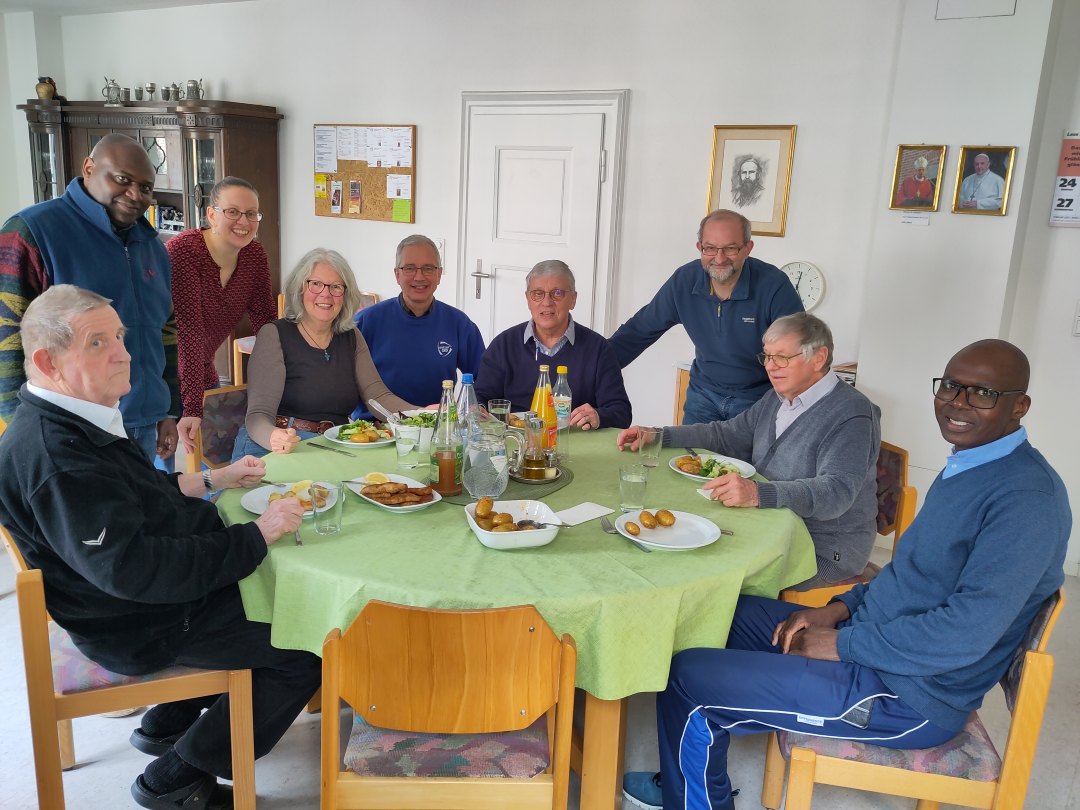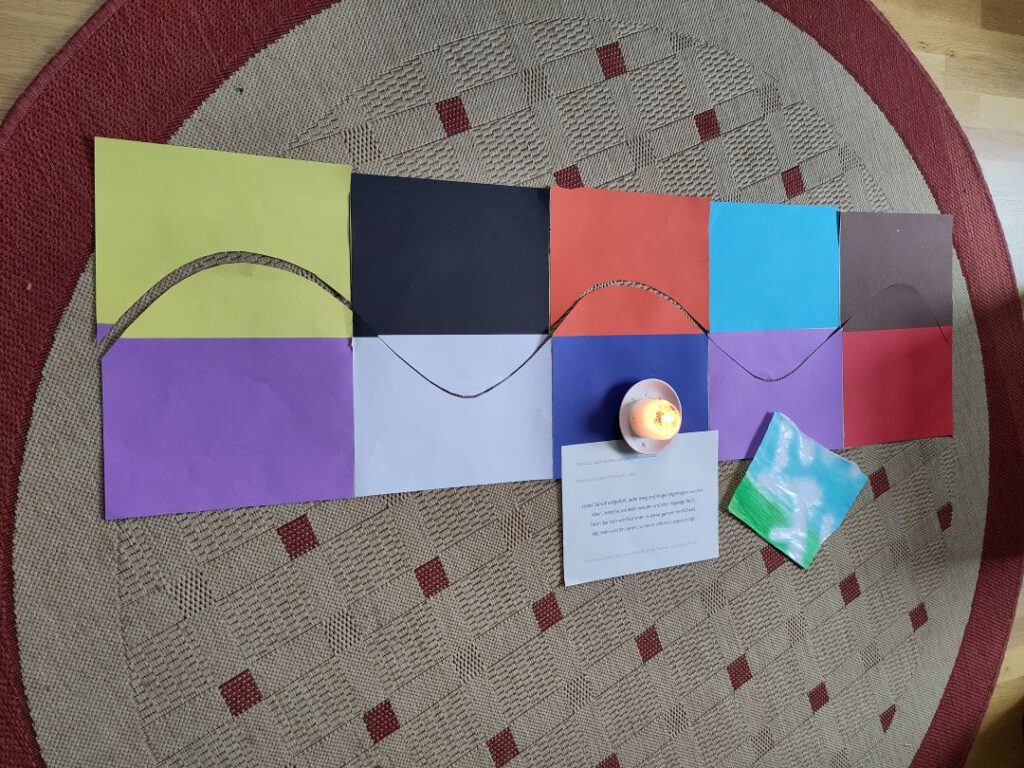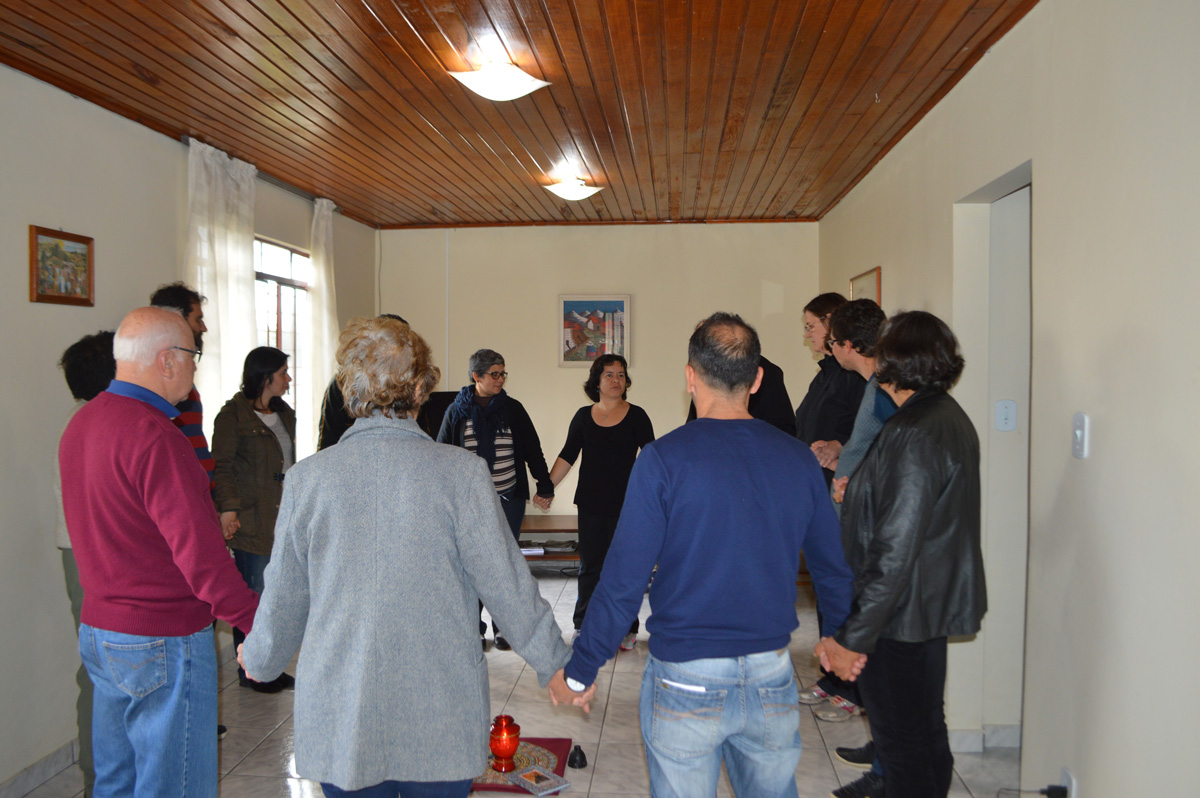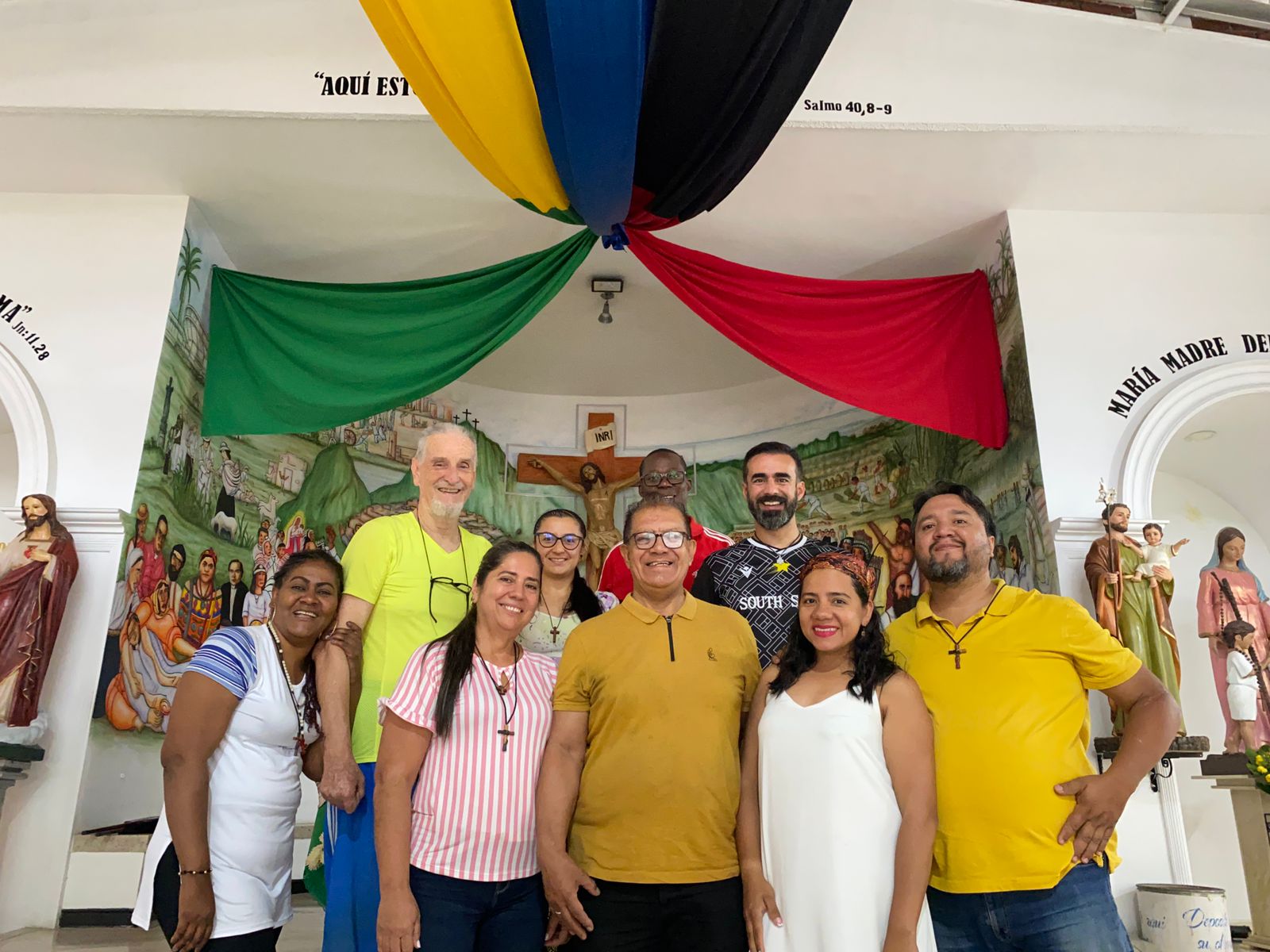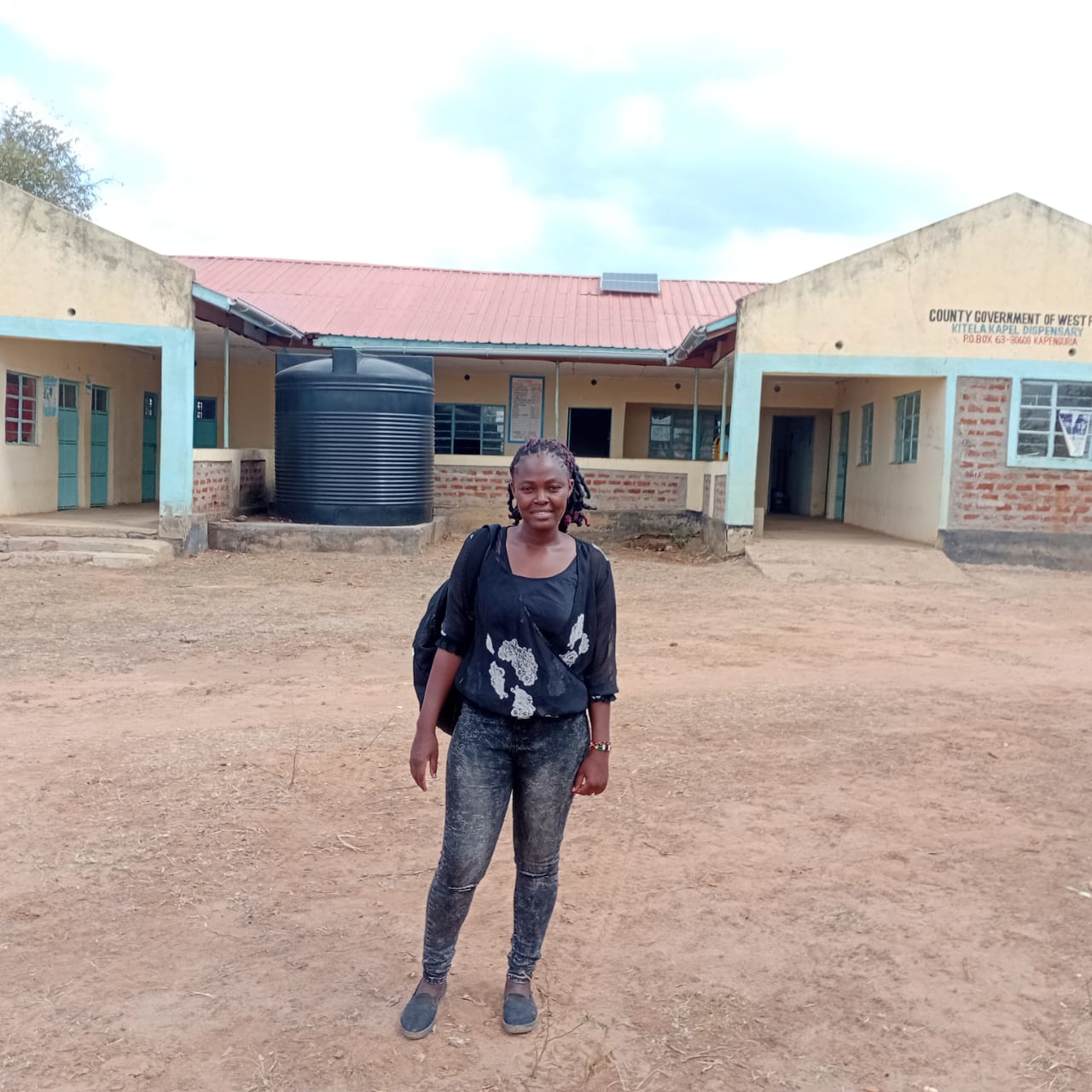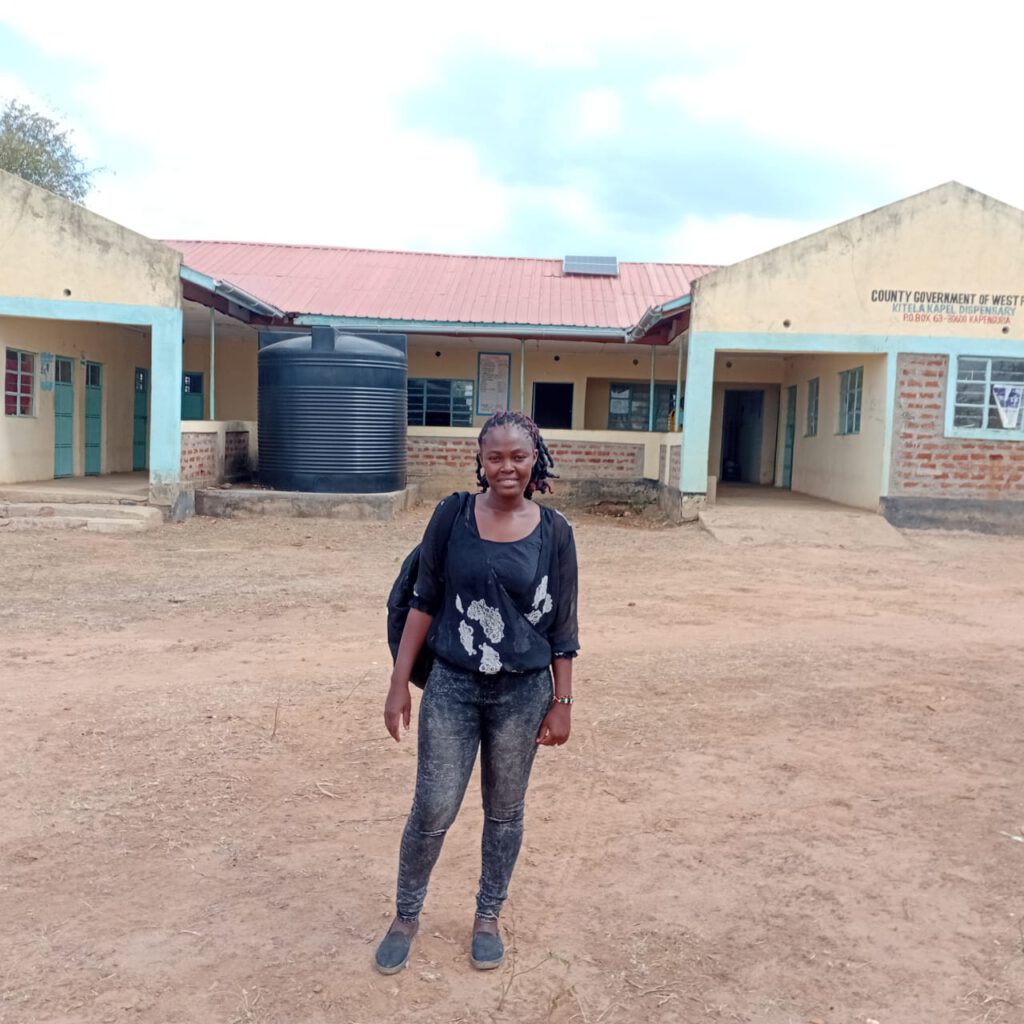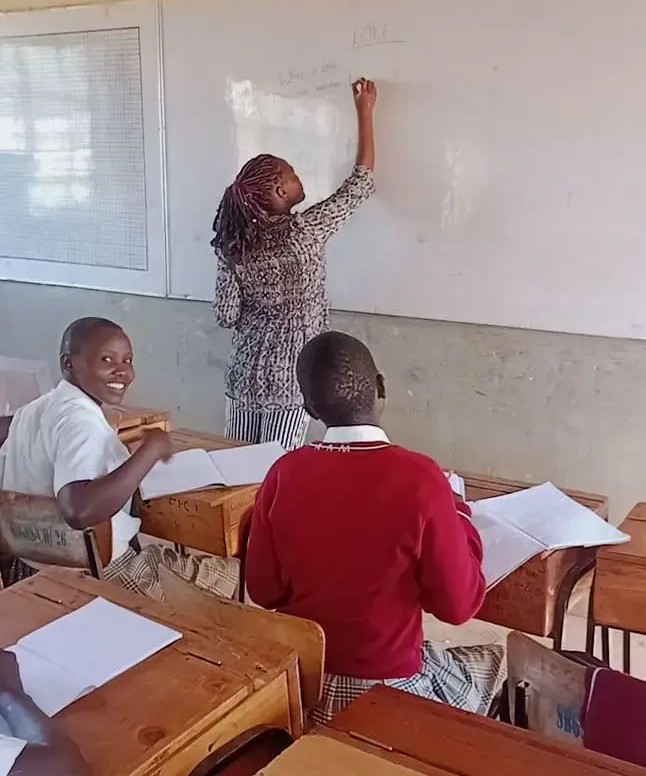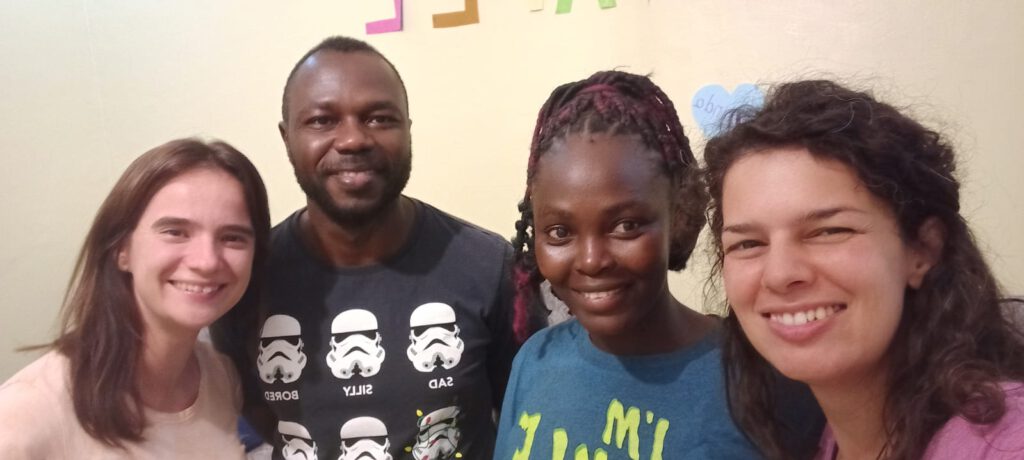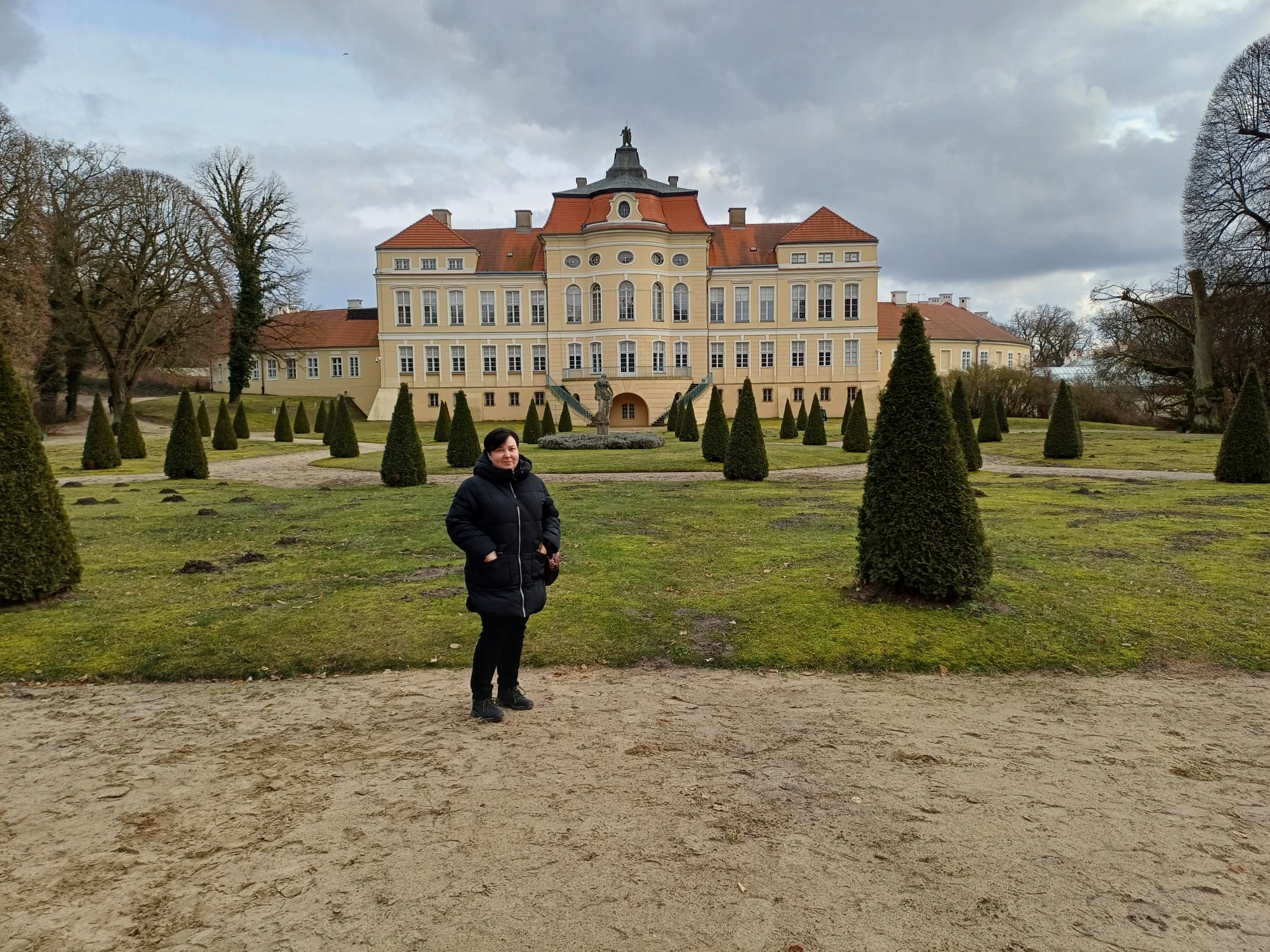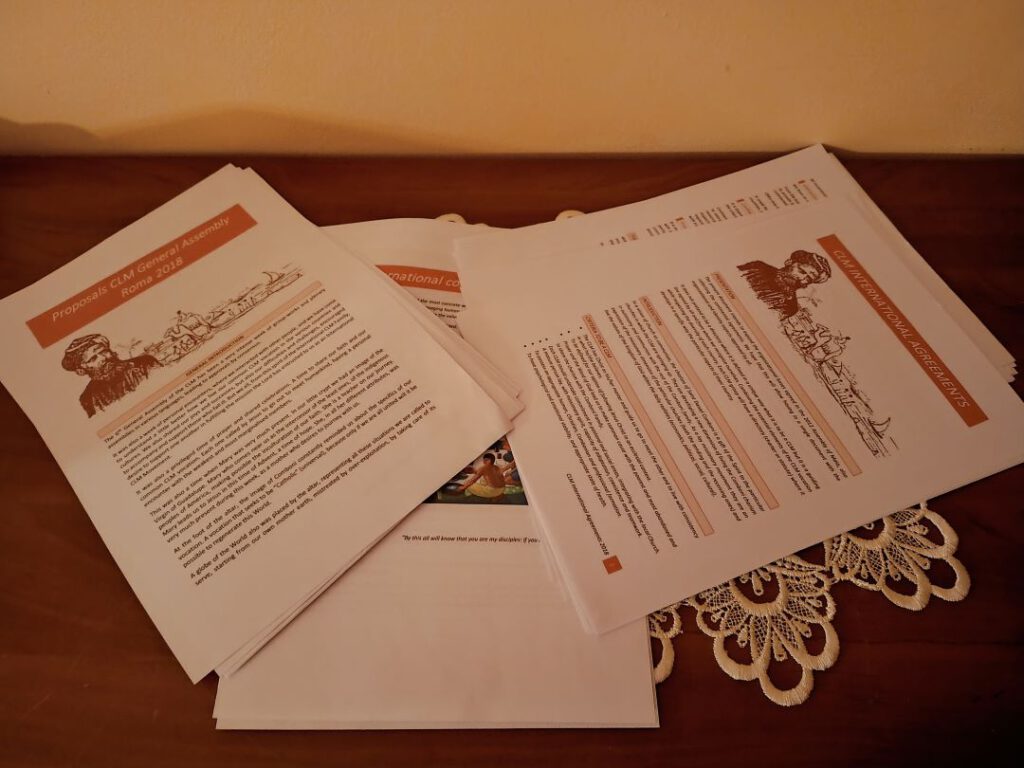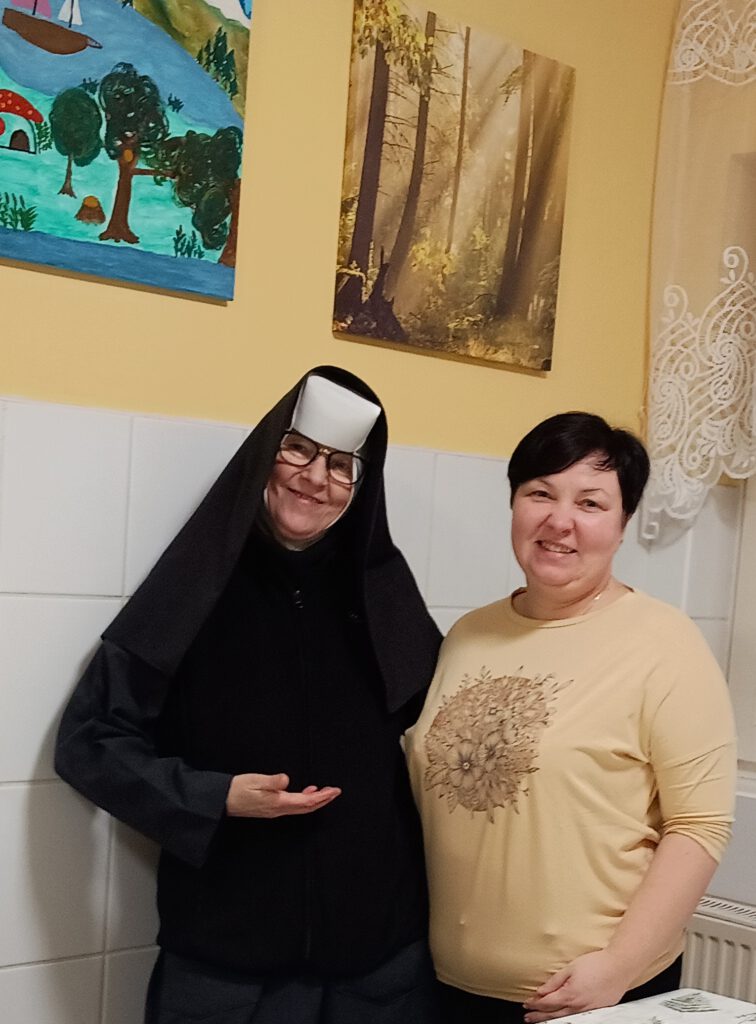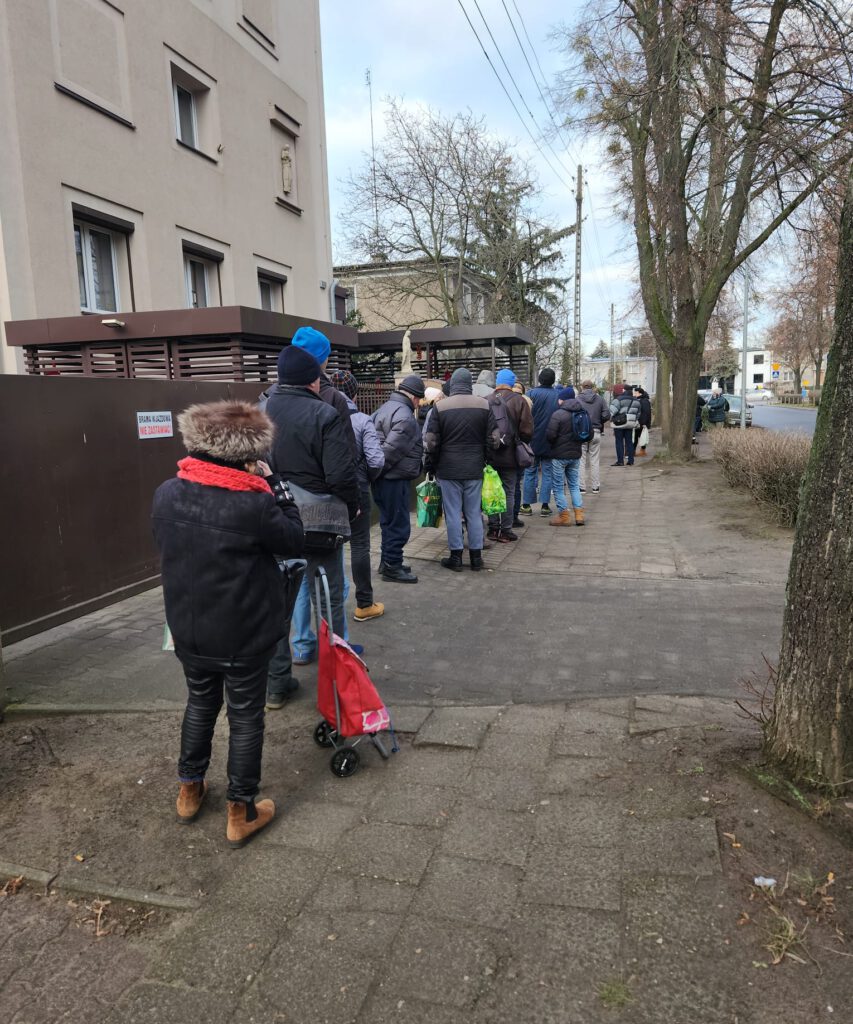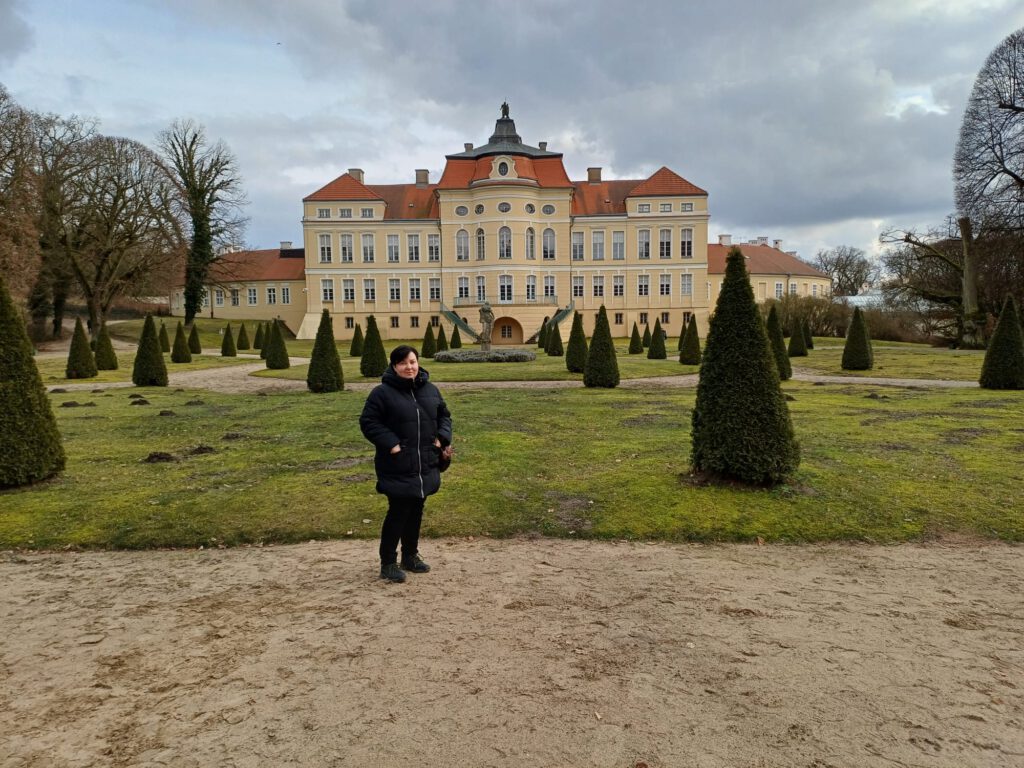At the first meeting of the year, Maria told us about the general assembly in Maia, informed the group about the decisions and brought some requests from the group in Poland.
She also brought memories and greetings from colleagues and friends. We made plans for the meetings in presence, via zoom and the themes we want to work on. Together with Father Günther from the MCCJ, we made a commitment to take part in the “Katholikentag” in Würzburg in 2026. In October we want to visit the community in Graz and strengthen ties within the family. We have also redefined the positions within the group: Maria has taken over as coordinator, Willi continues as treasurer, Christoph as representative on the European coordination, Brigitte as contact person for JGIP and Barbara for the peace exhibition and updating the website.

CLM, Germany




